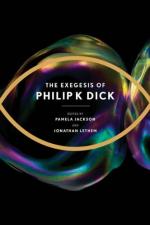|
This section contains 9,736 words (approx. 33 pages at 300 words per page) |

|
SOURCE: Palmer, Christopher. “Philip K. Dick and the Nuclear Family.” In Philip K. Dick: Contemporary Critical Interpretations, edited by Samuel J. Umland, pp. 61-79. Westport, Conn.: Greenwood Press, 1995.
In the following essay, Palmer regards Dick as an author “who mixes parable and fantasy with licentious impurity,” resulting in a reflection on morality and the question of humanness.
Fantasy, as a literary form possessing a distinct mode and a distinct structure,1 has attracted much recent attention. This attention is an episode in the politics of a literary criticism that has become intensely alert to the menace of ideological complicity that waits on every literary form and critical practice. Liberal humanist criticism is seen as having privileged “classic realism” and as having practiced a mimetic criticism on it. As the fiction of, for instance, George Eliot both reflects reality and reflects on it discursively, so liberal humanist criticism of Eliot's...
|
This section contains 9,736 words (approx. 33 pages at 300 words per page) |

|


